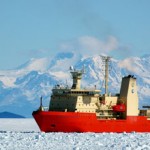
Science Literacy Week will be celebrated this September 20 to 26 with climate as the theme. We can help you become a citizen climate scientist with a workshop on capturing the McGill Observatory’s historical weather logs with DRAW, the Data Rescue: Archives and Weather Project.
You can also learn The Art of Explaining Science to Non-Specialists, or how to turn your research into a business, with From Science to Startup: A Beginner’s Guide to Entrepreneurship as a Researcher.
If you are looking for something relaxing this semester, McGill Visual Arts Collection invites you to a Science Literacy Week edition of their on-going De-Stress + Sketch series.
Our Science Literacy Week guide also has lots of virtual exhibits and links promoting resources and materials at McGill Library and beyond, including the wonderful Ocean School from the National Film Board of Canada.
Join us as we help spread the wonders of science Canada-wide!


